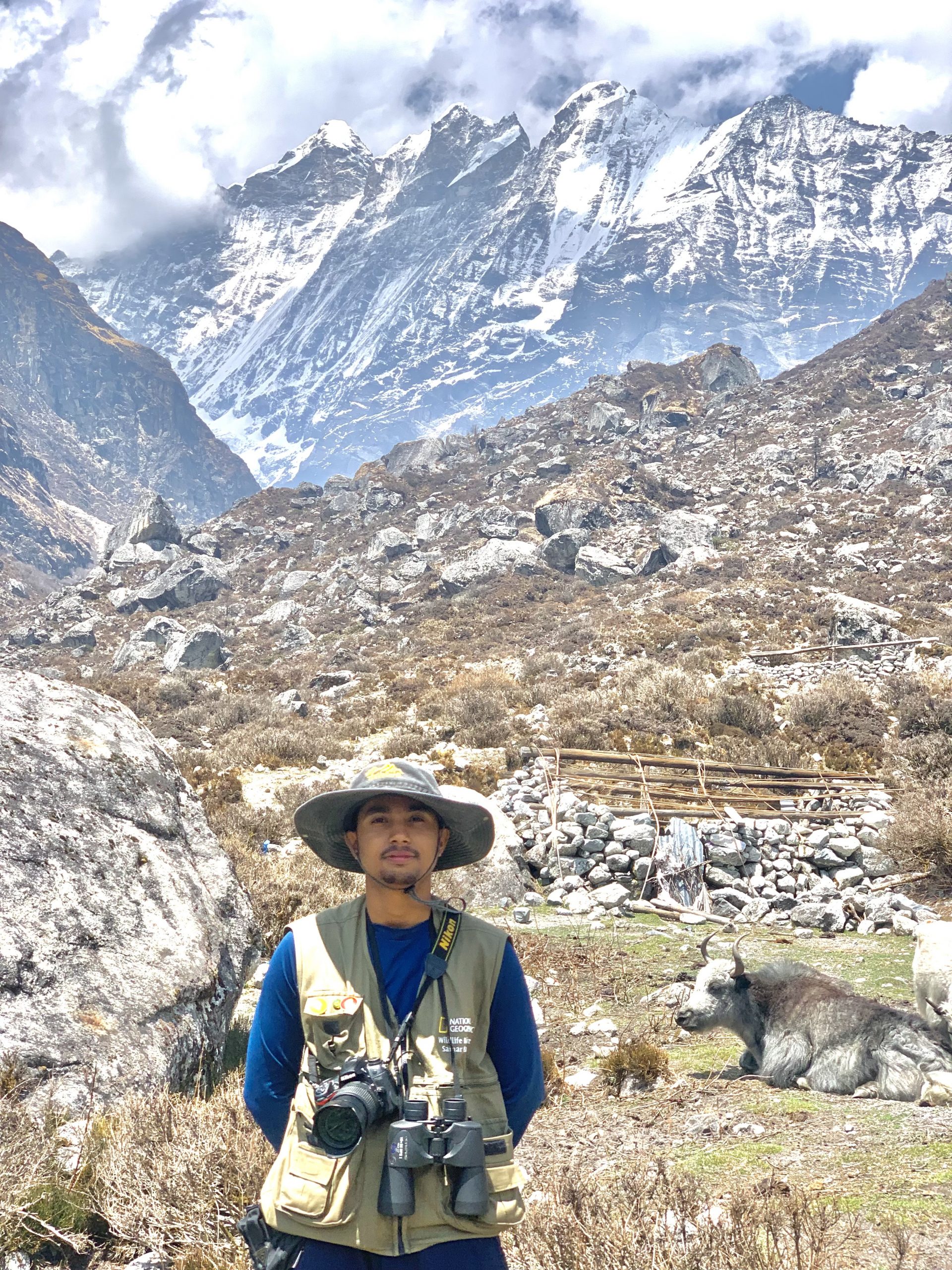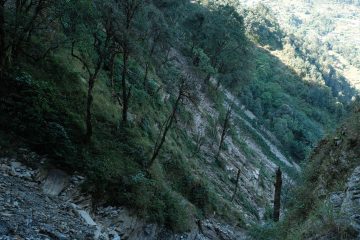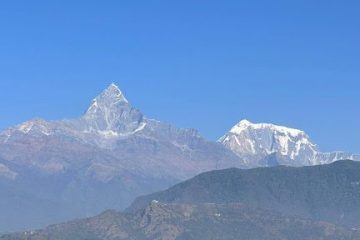Samar Baniya, a young environmental science and wildlife student, is making waves in Nepal’s conservation efforts. As a researcher, translator, and facilitator, Baniya is committed to protecting Nepal’s vulnerable wildlife amidst challenges posed by climate change and unstable politics. In this exclusive interview with Buneko’s Sejal Bajracharya, Baniya shares his journey, findings, and vision for wildlife conservation in Nepal.
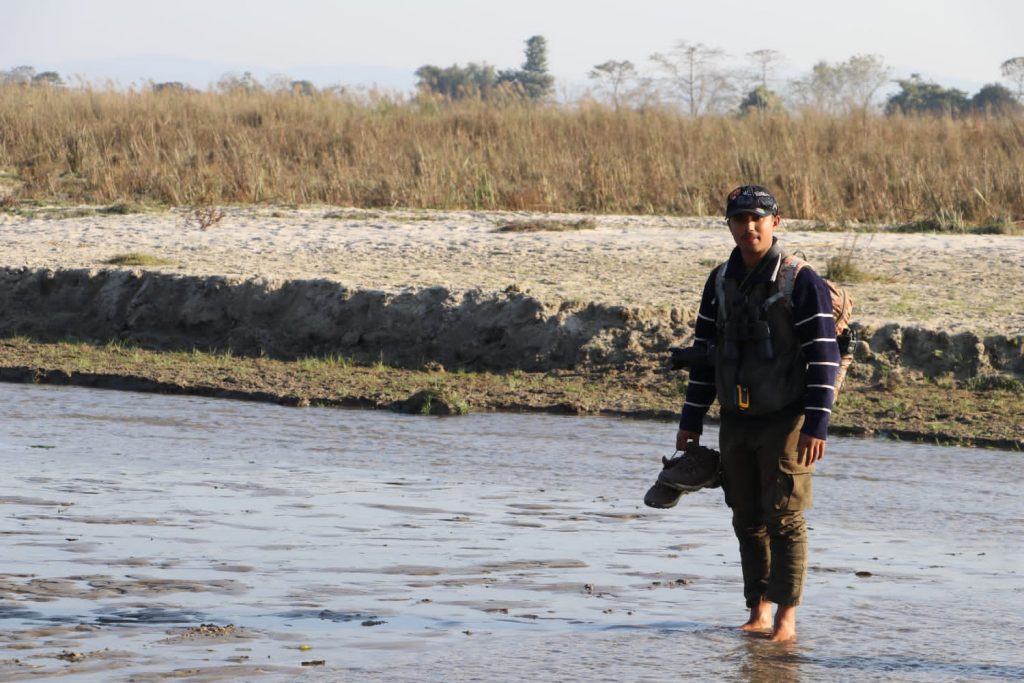
The Journey Begins
Can you tell us about yourself and how your journey in wildlife conservation began?
“I’m currently majoring in environmental science and wildlife for my undergraduate degree at Balkumari College in Chitwan,” Baniya begins. His journey started with a childhood fascination for nature shows. “I was quite hooked to shows like Man vs Wild and documentaries on National Geographic, Animal Planet, etc. I was also a huge fan of David Attenborough and Bear Grylls.”
Despite being a strong academic student and even getting selected for an MBBS program, Baniya felt a different calling. “I opted out of the program. After that, I worked as a translator for foreigners for three months in Chitwan who were researching the biodiversity of Chitwan National Park. That urged me to choose environmental science and wildlife.”
Baniya’s motivation extends beyond academics. “I chose this subject not to get a degree but rather to seek out the mystery of nature and strengthen my bond with it.” He noticed a gap between academic work and community engagement in environmental science. “I stepped in to tell stories of nature and the fragments of it that we often choose to ignore and take for granted.”
Collaboration with Buneko
What inspired you to choose Buneko as a collaborator? What value did our collaboration bring?
Baniya’s collaboration with Buneko came about serendipitously. “When I was browsing the internet to search for olive-colored military-style jackets, especially for expedition purposes, I had failed to find the one in major sites and shops. However, I was hooked the moment I came across the post with the jacket I was looking for on Buneko’s site.”
The brand’s commitment to sustainability resonated with Baniya. “It fascinated me knowing that the brand deals with left-over garments and is upfront for promoting sustainable practices. I was even more relieved after learning that the brand is engaged in sustaining cultural heritages through the medium of crafts.”
The collaboration proved fruitful for Baniya’s Langtang expedition. “I liked the camouflage shirt very much as it was comfortable and my friends too liked how the clothing was perfect with fine fabrics. The support from the team was also one of the major reasons for the fine research.”
The Langtang Expedition
How was your Langtang expedition and what are your major findings so far?
Baniya’s expedition to Langtang was challenging but rewarding. “On 18th April, we set off on a journey from Kathmandu to Dhunche. However, the weather was scrutinizing for someone living in a warmer area. Two of my friends had to sustain themselves whilst being food poisoned and they’d to retreat back.”
The team’s persistence paid off. “We were in search of Bearded Vulture which is one of the most endangered species in the world. However, when we failed to spot one even after 8 days had gone by on our journey off to the Kyojing route, we were preparing to return back. Luckily, we spotted one on the 8th day and the next day, we were set to seek their nest.”
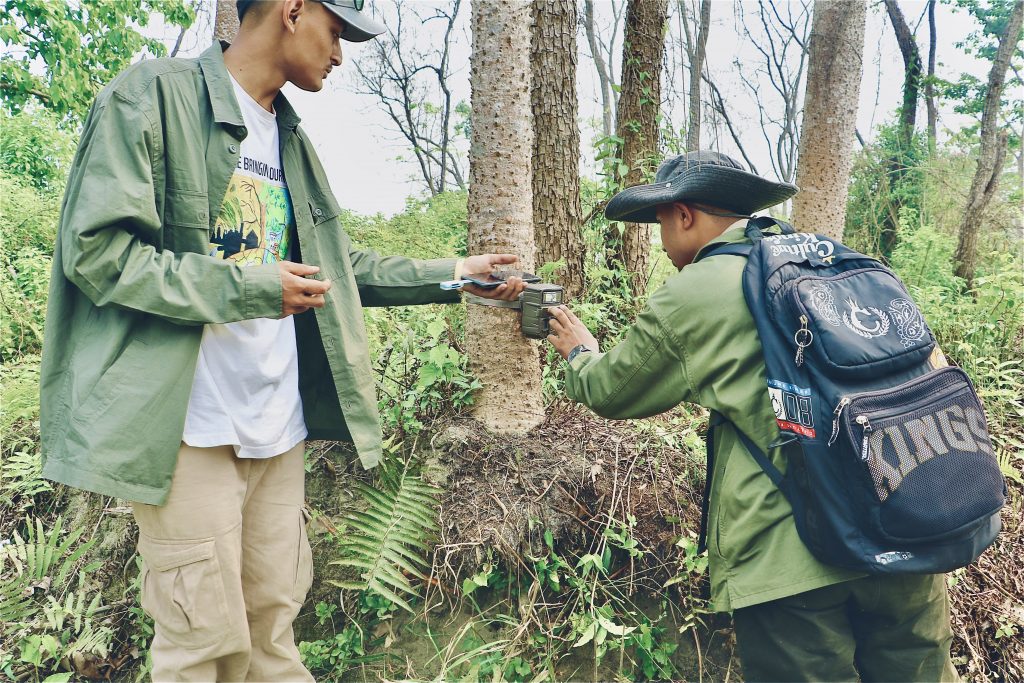
Baniya shared fascinating details about the Bearded Vulture. “They are the biggest of vultures with wingspan of two of summing to the length of 2.8 meters. They mostly feed on bone marrow of dead animals and are loyal to their partner to the level they are monogamous for the rest of their life if they lose their partner.”
Environmental Challenges and Conservation Efforts
What are your insights on social and environmental issues in the country? What are the threats to the environment?
Baniya highlighted several critical issues facing Nepal’s wildlife and ecosystems. “It was heartbreaking to see a boy of 8 years old die due to carelessness of foreigners who had brought dogs from a foreign country that bit the boy. They didn’t even care about helping the victim nor were they punished for the lack of their negligence.”
He also pointed out the problem of pollution in protected areas. “In my field work, I observed how even the most educated people litter around in national parks, conservation areas etc. As if they’re not already polluted by sewage in water bodies there.”
Another significant issue Baniya mentioned was the displacement of local communities. “For the sake of tourism and conservation, we’ve sadly abandoned our own local people who have broad knowledge on conserving the land masses with sustainable indigenous practices. They’re now jobless, unable to access resources to meet their daily needs and are often brutalized in their own homeland as if they don’t belong in those spaces.”
Recommendations for Change
How do you want the actions to be taken for addressing the issues of social and environmental injustices? How do you urge people who look forward to making contributions for protecting endangered species?
Baniya offered several recommendations:
- “The simplest of things to do is to penalize the litter makers heavily. We can mobilize student bodies, organizations and local governments to strictly adhere to disciplined activities on expeditions.”
- “We need to ensure that we respect the wildlife of our country and question the traditions and cultures that promote harming animals for the sake of fake valiant and recognition.”
- “I urge people to not post photos of wildlife and put the information about the location altogether because that is a huge bonus for poachers who look forward to take advantage of our carelessness.”
- “Similarly, domesticated animals need a different zone for the sake of herding so that they don’t harm the ecology of wildlife.”
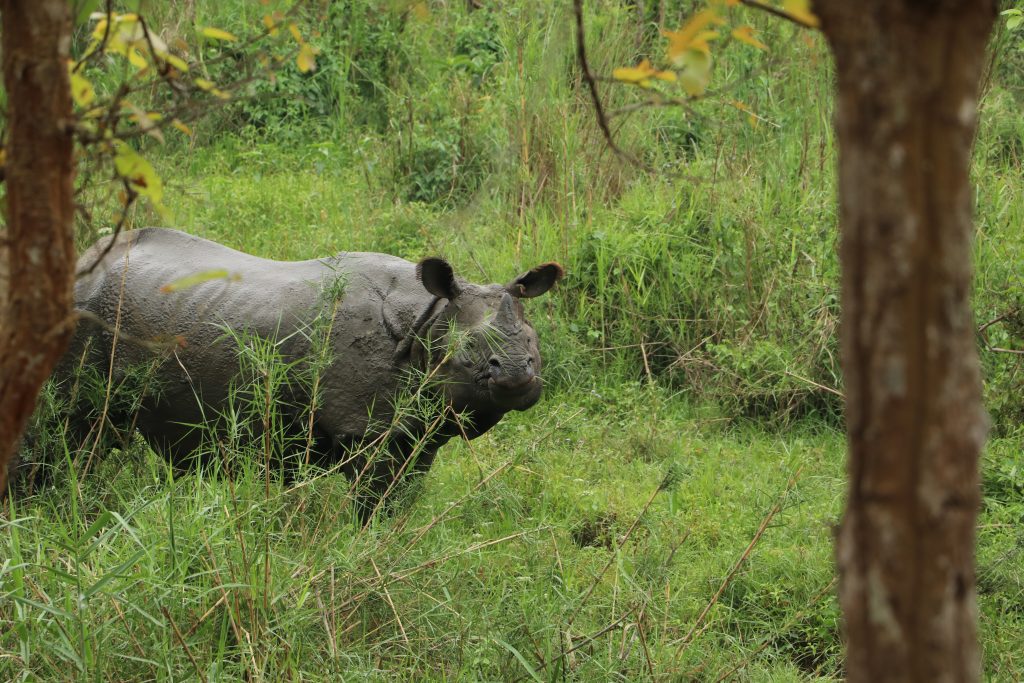
Throughout the interview, Baniya emphasized the importance of kindness in conservation efforts. “Kindness should be the core of human existence,” he stated, urging for more compassionate approaches to wildlife and environmental protection.
As Saurav Karki, Founder of Buneko, aptly put it, “It was thus not so hard to dream of a better future. I found hope in Samar Baniya’s work.”


